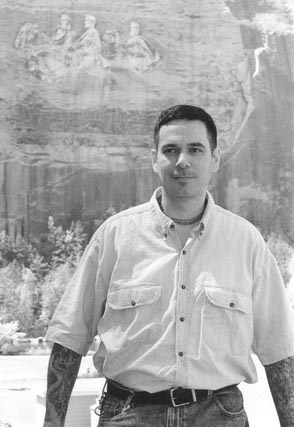
chapter XX
Of all of the romantic spots in Calcutta, the Victoria Memorial is the most famous. Situated in the heart of the city, it is to Calcutta what the Eiffel Tower is to Paris.
Built by the British for their Queen, it is a splendid example of classical architecture using the finest Indian stones, almost on par with the Taj Mahal. I have been to India ten times and have never visited the Taj. Frankly, I have no desire to see a monument to a Muslim’s dead wife. Moreover, the Victoria is a close second, so why bother? Despite whatever one may think of the British and their rule of India, the Victoria is beautiful in the eye of any beholder.
Surrounding the memorial are well-kept grounds with fountains, statues, and shaded benches. Lovers from all over the city come here daily to smooch in semi-privacy. Young boys and girls flock here after school to enjoy each other’s company.
Shilpi and sit on the grass talking about our respective pasts and our joint future as her attention keeps wandering to the activities of one young couple kissing beneath a tree nearby.
Dako ki korcche!
“Look what they are doing!” Shilpi exclaims.
O’r kono lajjau nei? Jani shei chelle o’ke biye korbe na!
“She has no shame? I just know that boy isn’t going to marry her!”
Shilpi informs me that girls from her country are not the same as the “fast” Calcutta girls. She assures me that Bangladeshi girls are very chaste and always stay with their husbands. As a Muslim-dominated country, such public displays of affection are strictly taboo.
I keep trying to catch Shilpi's attention, but she continues to observe the shameless couples around us.
Tomar chok'ta bhishon shundar.
"Your eyes are very beautiful," I inform Shilpi. It's easy to fall into a romantic mood at the Victoria.
Tomar, o. Anek kicchu rang acche; nil, shobujh, lal...
"Yours, too. There are so many colors; blue, green,. brown.."
Ekta chummoo khabo?
“Can I have one kiss?” I tease playfully.
Bangladeshi girls are not so easy, Shilpi reminds me.
We tire our feet walking and head back home in the late afternoon. Before reaching the subway, we visit the local art museum which is featuring an exhibit of photographs by local artists. While admiring one print by Bengal’s most famous photographer, Raghu Rai, a museum employee takes my photograph. Shilpi asks in a whisper why they are taking my picture and I explain for publicity, possibly to be included in a newsletter or on their website.
Calcuttans love the arts and on any given day there is always an opening, a drama, a film festival, or a recital. Shilpi and I tour the whole museum, but we both enjoy the sculptures best.
Calcuttans love fast food. Indeed, sweet shops abound all over the city and all over India, Bengali sweets are known as being the finest. Practically every street has it's own mishti dokon [sweet shop] with a variey of sweetmeats on display; roshogolla, shandesh, kacchagola, khira khadam, etc. Everyone knows that his neighborhood shop has the best mishti dahi, malai chom chom, or whatever. If one goes in public, say on a crowded city bus, and asks his neighbor loudly enough, "Where can I get the best roshogolla?" Certainly he will get twenty different answers from whoever is in earshot.
Neither Shilpi nor I have a sweet-tooth, so we ignore the ubiquitous sweet shops and opt for the sidewalk vendors near the museum. Shilpi decides to have some moori [puffed rice] which is quickly mixed with chillies, peanuts, and fresh coriander leaf. It is then served in some folded-up newspaper. I order two glasses of ankher rosh [sugarcane juice] which is made in front of me by crushing the stalks between heavy rollers. For extra flavor, a lime is added at the end, crushed along with the remainder of the stalks. I offer one clay cup to Shilpi and then relish my own sweet, frothy beverage. Finished, we smash the clay cups against the pavement and make our way to the subway, known here as the metro.
This evening the weather is clear and cool so I request Shilpi to take a walk with me on the roof of our building. Despite our sore feet we head up the two flights and open the door to a brilliantly colored evening sky.
As the last rays of the sun descend and the full darkness of night falls on us, we slowly pace the short distance the roof offers while talking about our families. Shilpi tells me about her brothers back in Bangladesh. She is scheduled to return to her uncles’ house in a few days for an overnight visit for some religious observance.
As Shilpi tells me about my new brothers-in-law, she begins to feel homesick. She asks if she can return a few days early.
Tomar ma’r niche goram tail porbo ar tomar babar badam bhajbo!
“I will pour hot oil in your mother’s “down there” and fry your father’s nuts!” I playfully threaten.
Snuggling together a the dark corner of our roof, we discuss our future. I am scheduled to leave the country in two weeks. I remind Shilpi that I will be returning to India soon. I inform her that since it will be so difficult to register the marriage, it would be better if I stay with her in Calcutta. I assure her that I am perfectly capable of earning a good living here and taking care of her and our children very comfortably. I tell her that our future is so bright that she will need sunglasses.
Tomar sate naroke zabo
“I would follow you to hell,” she reminds me.

No comments:
Post a Comment